African leaders recently agreed to take the first steps toward integrating three existing African trade blocs, which would create a 26-member trade group stretching from Egypt to South Africa. In an email interview, Peter Draper, a senior research fellow at the South African Institute of International Affairs, discussed the proposed Grand Free Trade Area. WPR: What is the driving force behind combining Africa’s regional trade blocs into a broader African free trade bloc? Peter Draper: There is no single driving force; rather, at least three separate motivations can be identified. At the level of high politics, the ideal of creating […]
Africa Archive
Free Newsletter
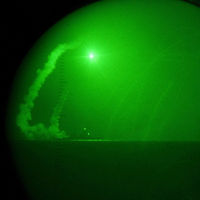
The Libya intervention has capped a difficult decade for airpower. While the combination of airstrikes and special forces units on the ground quickly overthrew the Taliban regime in 2001, the utility of airpower in counterinsurgency was called into question over the course of the long wars in Afghanistan and Iraq. It was hoped that the intervention in Libya would restore airpower’s luster by quickly defeating a tyrant bent on destroying his political enemies. But the campaign launched by the West’s most powerful air forces has thus far failed to dislodge Libyan leader Moammar Gadhafi, or even to force him to […]
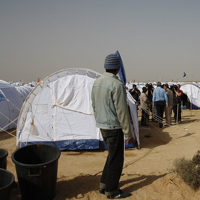
When do humanitarian crises resulting from internal conflicts merit international military intervention? Despite the formal international consensus endorsing an international “responsibility to protect,” there is very little agreement on when armed intervention in another state’s internal conflicts is justified and appropriate. Even among Western nations, where support for this concept is strongest, there is no general agreement as to what ought to trigger international intervention. The ongoing U.S. and NATO military intervention against the Libyan government has become the first test case for the responsibility to protect (R2P) doctrine since U.N. member states approved it in 2005. However, the manner […]
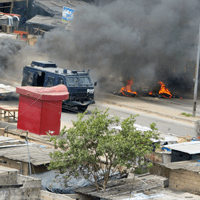
U.N. Security Council Resolution 1973 (.pdf) resulted in prompt international action that delivered Libyans from the murderous violence Moammar Gadhafi had already inflicted on civilians early in March, as well as from violence he continued to threaten against what he called, in an eerie echo of Rwanda’s murderous regime in 1994, the “cockroaches” who opposed him. Earlier, the council’s Resolution 1970 (.pdf) had unanimously approved an arms embargo, asset freeze, travel ban and reference to the International Criminal Court. In addition, the U.N. Human Rights Council unequivocally condemned Libya, which led to the General Assembly’s unprecedented decision to suspend Libyan […]
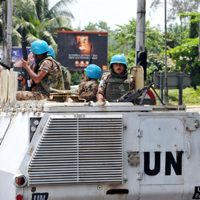
The debate over humanitarian intervention has a way of calling forth unconditional answers to a question that ought to elicit subtle reflection: What responsibilities do citizens of some or all states have to those of another state who are suffering grave harm? Realists argue that, however tragic, such situations seldom if ever touch on the fundamental interests of other powers, and thus no response is justified. Anti-imperialists maintain that most of the outside powers that have the ability to intervene cannot do so justly or disinterestedly, for reasons of history and current political economy. Purists claim that interventions are not […]
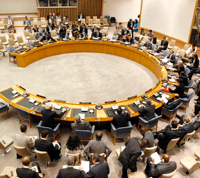
Despite all the favorable rhetoric regarding the responsibility to protect, governments continue to hesitate to embrace wholeheartedly the doctrine whereby, in the event a state is unable or unwilling to prevent its citizens from dying in large numbers, other states must be prepared to intervene. Governments from around the world endorsed this concept in the abstract at the September 2005 World Summit, but have been reluctant to apply it in reality. Indeed, Paragraph 139 of the World Summit Outcome document hedges, noting that application of the principle will be undertaken “on a case-by-case basis.” Some experts, however, have argued that […]
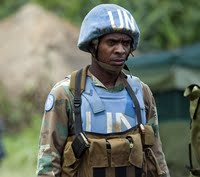
Editor’s note: This is the second of a two-part series on rebel groups in Central Africa. Part I examined recent moves toward peace and stability in Chad and the Central African Republic. Part II examines ongoing instability in Sudan and the Democratic Republic of the Congo. While Chad and the Central African Republic (CAR) are dismantling rebel groups and moving toward greater stability, Sudan and the Democratic Republic of the Congo (DRC) are continuing on a violent path. On July 9, Sudan will become two nations. The Republic of Southern Sudan, which will enter independence as one of the poorest […]
Last week, the Islamist group Boko Haram bombed Nigeria’s police headquarters in Abuja, killing six. In an email interview, Jennifer Giroux, a senior researcher at the Crisis and Risk Network at ETH Zurich, discussed Nigeria’s rebel groups. WPR: Who are the main rebel groups in Nigeria, and what are their main objectives? Jennifer Giroux: Nigeria is a complicated case. One can delineate two types of rebel groups. The first operates in the south in the Niger Delta, where decades of poor natural-resource management has left the region in a state of low development, high poverty and significant environmental damage. The […]
I just wanted to add a couple of final thoughts to my post last week on the Libya . . . war. I initially agreed with the Obama administration’s sense that the U.S. participation did not rise to the constitutional threshold of war powers. But just about every online writer whose opinion I respect considers that assessment to be not only unconvincing but ridiculous on its face. That, combined with the fact that we now know the administration arrived at it by cherrypicking its own internal legal advice, makes me realize that I, like the Obama administration, was taking an […]
The latest round of U.N.-sponsored talks to resolve the conflict over Western Sahara foundered recently. In an email interview, Yahia H. Zoubir, a professor of international relations and international management and the director of research in geopolitics at Euromed Management in Marseilles, France, discussed the Western Sahara talks. WPR: What are the major issues involved in the Western Sahara conflict? Yahia H. Zoubir: There are two major issues. First is the illegal occupation of Western Sahara by Morocco, which invaded the territory in 1975, despite an opinion issued by the International Court of Justice (ICJ). The ICJ had refuted Morocco’s […]
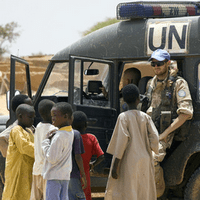
Editor’s note: This is the first of a two-part series on rebel groups in Central Africa. Part I examines recent moves toward peace and stability in Chad and the Central African Republic. Part II will examine ongoing instability in Sudan and the Democratic Republic of the Congo. On June 12, the government of the Central African Republic (CAR) and the country’s last major rebel force, the Convention of Patriots for Justice and Peace, signed a peace agreement. The following day, mediators in Chad reached a peace deal with the Popular Front for Reconstruction, a rebel movement based in the CAR […]

With oil prices nearing $120 a barrel and Libyan exports shut down, all eyes were on the 12 members of the Organization of Petroleum Exporting Countries (OPEC) during their meeting in Vienna earlier this month. The International Energy Agency (IEA) had strongly urged OPEC, which produces 40 percent of the world’s oil and holds much of the spare capacity, to raise production output to stem rocketing oil prices and prevent a potential double-dip recession. That did not happen. In what Saudi Oil Minister Ali al-Naimi labeled one of the worst meetings he had attended, the proposal by Saudi Arabia, Kuwait, […]
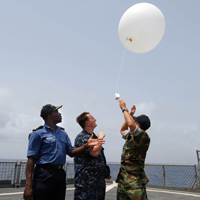
In his greeting sent to the 16th World Meteorological Congress, which wrapped up in Geneva on June 3, U.N. Secretary General Ban Ki-moon welcomed proposals on the congress’ agenda that he said (.pdf) would “assist the poorest and most vulnerable countries [to] adapt to inevitable impacts [of climate change].” Ban urged members to “continue [their] work to improve predictions and early warning on impending weather and climate hazards. This issue will only grow in importance.” Indeed, increases in climate variability have negatively affected the economic development and welfare of the least developed nations over the past several decades. For much […]
Sudan and Ethiopia recently reached a initial agreement to explore and develop mineral resources along their shared border. In an email interview, David Shinn, a former U.S. ambassador to Ethiopia and a current adjunct professor of international relations at George Washington University, discussed Ethiopia-Sudan relations. WPR: What is the recent history of relations between Ethiopia and Sudan? David Shinn: Ethiopia and Sudan have a long history of alternating periods of conflict and cooperation. Following the outbreak of war between Eritrea and Ethiopia in 1998, Ethiopia’s relationship with Sudan shifted from hostile to cordial as Ethiopia sought to ensure peace on […]
The purchase and sale of carbon credits are relatively new concepts in Africa, accounting for less than three percent of the $144 billion global carbon credit trade. The system is designed to reduce carbon emissions worldwide by allowing projects that that produce low carbon emissions to sell credits to projects that want to reduce their carbon emissions under the Kyoto Protocol.
It has been roughly 90 days since the Libyan intervention began, and roughly 89 that it has been criticized for being a demonstration of strategic and operational incompetence. It has also been used as proof of the demise of everything from U.S. leadership to Europe’s expeditionary capabilities to NATO’s viability as an alliance. There’s something very familiar to me about this kind of over-the-top reaction: I recognize it as my own following every U.S. intervention of the past 20 years. There is perhaps nothing more maddening than watching one’s country engage in a war that one does not believe in. […]
